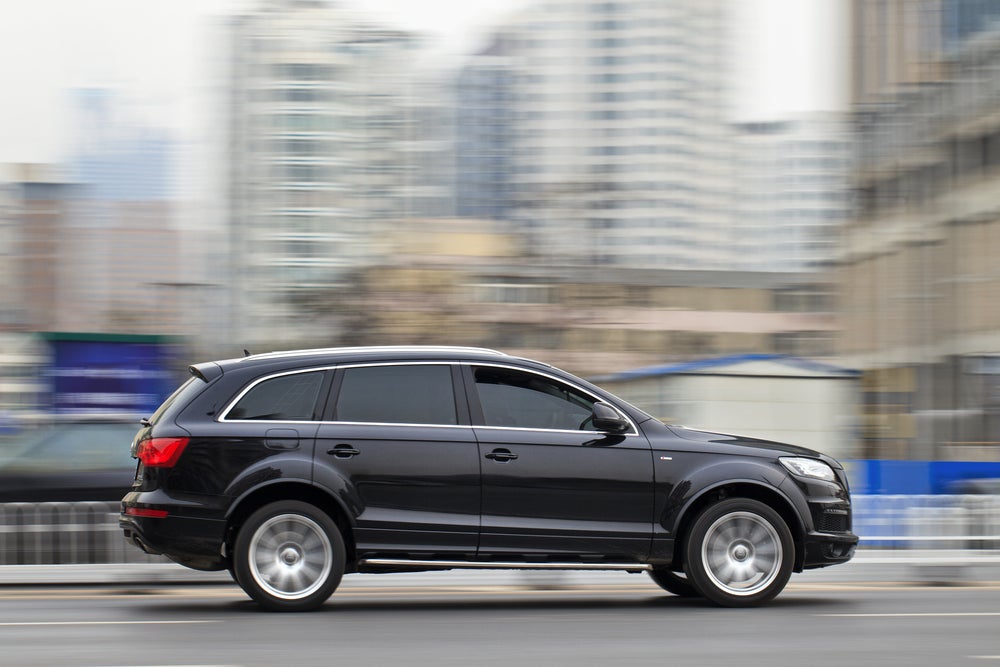
Electric vehicles proved to be the silver lining again in the UK new car market, which suffered a 1.3% decline in new car registrations in November.
This is according to the latest figures from the Society of Motor Manufacturers and Traders (SMMT), which showed the decline was driven primarily by weak private demand – where registrations fell 6.1%. Business registrations fell 3.2%, while fleet registrations saw a rise of 2.8%.
The trade body attributes the continued decline in the market to a number of factors, including weak business and consumer confidence, economic uncertainty and confusion over diesel and clean air zones, combined to affect demand.
Demand for battery electric cars, however, surged 228.8% in the month, while plug-in hybrids and hybrids also rose by 34.8% and 15% respectively. Elsewhere, petrol grew 2.0%, taking the lion’s share of all registrations (62.2%), as diesel fell -27.2%. Year-to-date, the overall UK new car market is down -2.7%, with 2.2 million cars registered, in line with current industry forecasts.
“These are challenging times for the UK new car market, with another fall in November reflecting the current climate of uncertainty,” said Mike Hawes, chief executive of the SMMT. “It’s good news, however, to see registrations of electrified cars surging again, and 2020 will see manufacturers introduce plenty of new, exciting models to give buyers even more choice.
“Nevertheless, there is still a long way to go for these vehicles to become mainstream and, to grow uptake further, we need fiscal incentives, investment in charging infrastructure and a more confident consumer.”
How well do you really know your competitors?
Access the most comprehensive Company Profiles on the market, powered by GlobalData. Save hours of research. Gain competitive edge.

Thank you!
Your download email will arrive shortly
Not ready to buy yet? Download a free sample
We are confident about the unique quality of our Company Profiles. However, we want you to make the most beneficial decision for your business, so we offer a free sample that you can download by submitting the below form
By GlobalDataMichael Woodward, UK automotive lead at Deloitte, said: “After significant investment in the technology by manufacturers, the growth of BEVs is welcomed in the industry. Demand for BEVs is also expected to accelerate when 0% company car tax rates on zero-emission vehicles are likely introduced in April 2020. However, this level of growth presents a number of challenges as we enter a new decade. Not only is significant investment required in the UKs charging infrastructure, but as BEVs continue to grow, the long term implications for tax revenues are unclear.”
Sue Robinson, director of the NFDA, added: “It is positive to see the upward trend facing the electric vehicle market with pure EVs taking a market share of 3% in November. Sales of EVs are likely to keep growing as market conditions continue to improve, customers’ knowledge and appetite grow, and franchised retailers are enabled to meet the rising demand for EVs.
“Retailers are working extremely hard to provide their customers with the best possible experience in the showroom as well as online and help them select the car that best suits driving habits.”
Seán Kemple, director of sales at Close Brothers Motor Finance, said: “There’s no doubt it’s been a bumpy year for the motor industry. Sustained confusion around fuel type paired with paralysis from the government around Brexit has led to issues in demand and supply alike. Regulatory hurdles such as WLTP and a lack of clarity around Benefit in Kind taxes have forced dealers up and down the country to work hard to adapt to the changing climate.
“Alternative fuel vehicles (AFVs) have come out on top in 2019. Sales of battery electric vehicles (BEVs) have increased rapidly, and hybrid electric vehicles (HEVs) have spiked. AFV sales have accelerated even despite a lack of adequate investment from the government in charging infrastructure. Small cars too have seen sustained demand, and petrol sales have grown steadily.”







